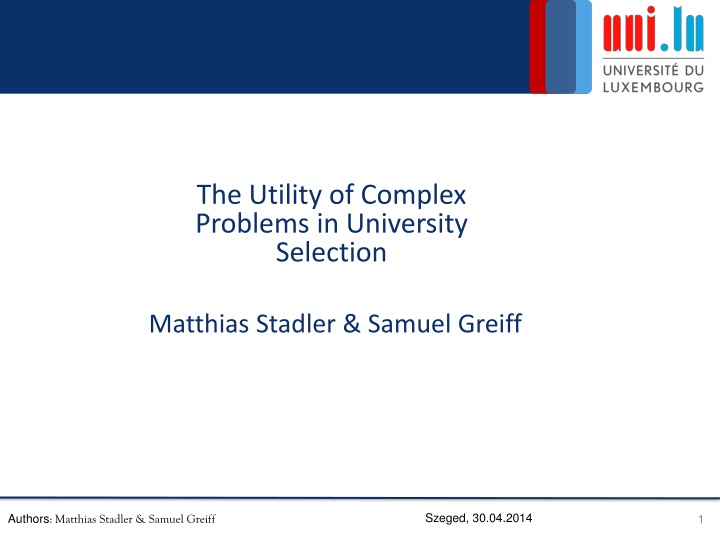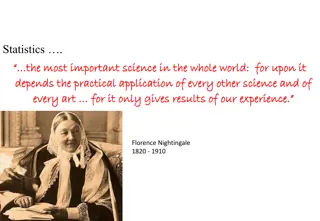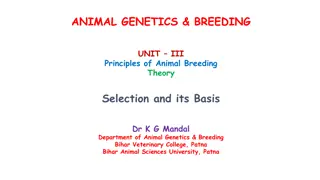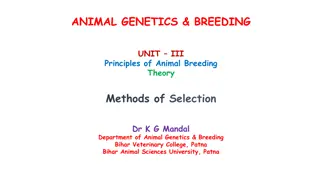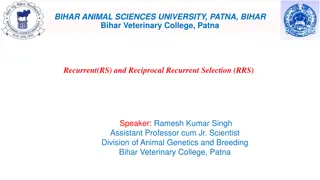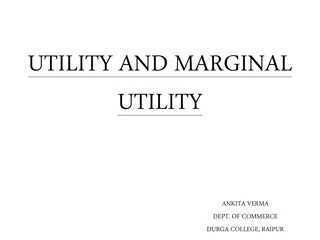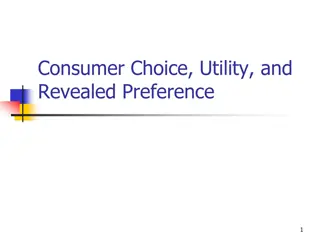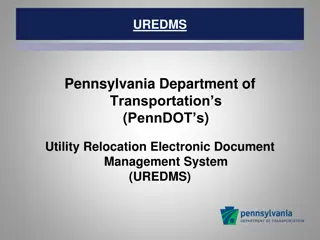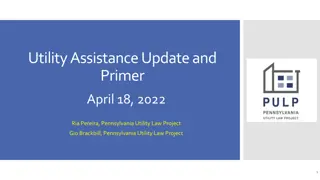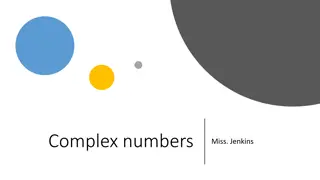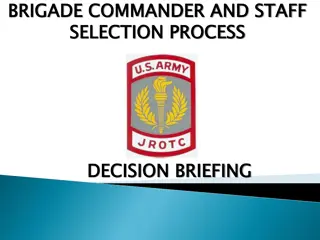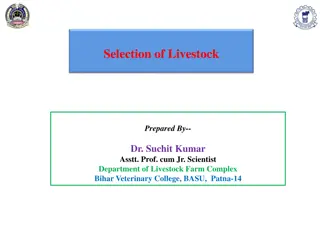The Utility of Complex Problems in University Selection
This document discusses the use of complex problems (CPS) as an additional predictor of university success, highlighting the importance of these problems in predicting school grades and university achievements. It also introduces established predictors of university success, including previous academic achievements and selection assessments. The study presents empirical evidence supporting the relationship between CPS, intelligence, academic performance, and overall university success.
Download Presentation

Please find below an Image/Link to download the presentation.
The content on the website is provided AS IS for your information and personal use only. It may not be sold, licensed, or shared on other websites without obtaining consent from the author.If you encounter any issues during the download, it is possible that the publisher has removed the file from their server.
You are allowed to download the files provided on this website for personal or commercial use, subject to the condition that they are used lawfully. All files are the property of their respective owners.
The content on the website is provided AS IS for your information and personal use only. It may not be sold, licensed, or shared on other websites without obtaining consent from the author.
E N D
Presentation Transcript
The Utility of Complex Problems in University Selection Matthias Stadler & Samuel Greiff Szeged, 30.04.2014 Authors: Matthias Stadler & Samuel Greiff 1
Predicting University Success (Bingham, 1917) Szeged, 30.04.2014 Authors: Matthias Stadler & Samuel Greiff 2
Established Predictors of University Success Previous academic achievement (over 90% of all German programs) Graduation grade (Abitur, dipl me de fin d tudes secondaires, GCSE, ) Weighted subject grades Selection Assessments SAT GRE Previous academic achievement and selection assessments account for 25% of university grades (e.g. Formazin, Schroeder, Koeller, Wilhelm, & Westmayer, 2011) Highly correlated with intelligence (e.g. Frey & Detterman, 2004) Szeged, 30.04.2014 Authors: Matthias Stadler & Samuel Greiff 3
CPS as an additional Predictor of University Success CPS is closely related to school grades (e.g. Greiff et al., 2013) CPS shows incremental validity in predicting school grades over intelligence (W stenberg et al., 2012) and working memory capacity (Schweizer et al., 2012) No published study relates CPS to university success Szeged, 30.04.2014 Authors: Matthias Stadler & Samuel Greiff 4
CPS as an additional Predictor of University Success Demands at university programs should be more complex than at school University programs include a higher degree of freedom and strategy Choice of lectures Planning of exam dates Szeged, 30.04.2014 Authors: Matthias Stadler & Samuel Greiff 5
First Empirical Evidence Stadler, Becker, Greiff, Spinath (submitted) Participants: 78 Participants (59% female) Participating in a business program (Master/Diplom) Measures: CPS (FSYS2.0) Intelligence (LPS short scale) Previous academic achievement (Abitur) Objective university success (University GPA) Subjective university success (5 item questionnaire) Szeged, 30.04.2014 Authors: Matthias Stadler & Samuel Greiff 6
FSYS2.0 (Wagener, 2001) Szeged, 30.04.2014 Authors: Matthias Stadler & Samuel Greiff 7
Results Results: CPS was a significant predictor of University GPA (R2= .14) CPS remained a significant predictor ( = .39) of University GPA even after High-School GPA ( = .49) and Intelligence (RW= .12) were controlled for (total R2=.48) Remaining Questions: Can this finding be replicated? Can it be generalized to other university programs? Follow-up study: Larger Sample Different Programs (Natural Sciences, Social sciences, Psychology, Business) Szeged, 30.04.2014 Authors: Matthias Stadler & Samuel Greiff 8
Subjective University Success 5 Statements (e.g. my grades are in appropriate relation to my effort ) Agreement on a 5 point Likert scale Internal consistency: = .80 (Pilot: .79) Correlation to GPA: r = .42** Szeged, 30.04.2014 Authors: Matthias Stadler & Samuel Greiff 9
Process Data Priority setting is a subscale of FSYS2.0 that indicates whether a participant reacted to imminent drops in the worth of a forest Priority Setting was the only significant predictor of subjective university success (R2=.25) Open Questions: Can this finding be replicated? What psychological construct is indicated by priority setting ? Follow-up study: Inclusion of self-control as a known predictor of university GPA and possible missing link Szeged, 30.04.2014 Authors: Matthias Stadler & Samuel Greiff 10
CPS Tasks are Highly Suited for University Selection CPS tasks are almost completely language free CPS tasks are relatively independent of previous knowledge (depending on the CPS measure) CPS tasks do not need distractors Item difficulty of CPS tasks can be described very well based on item characteristics Social validity of CPS tasks has been shown to be high (e.g. Sonnleitner et al., 2013) Szeged, 30.04.2014 Authors: Matthias Stadler & Samuel Greiff 11
Complex Problem Solving (CPS) in University Selection Summary: 1. CPS seems to have incremental validity over previous academic achievement and intelligence in predicting university grades 2. CPS process data can be used to explain non- cognitive aspects of University success 3. CPS tasks are highly suited for university selection Szeged, 30.04.2014 Authors: Matthias Stadler & Samuel Greiff 12
Discussion Do you see a major flaw? Do you see an additional advantage? Do you have an interesting sample/study to include CPS as a predictor of university success? Further Questions, Comments, Ideas? Szeged, 30.04.2014 Authors: Matthias Stadler & Samuel Greiff 13
Thank you for your attention! Szeged, 30.04.2014 Authors: Matthias Stadler & Samuel Greiff 14
Backup - Correlations Szeged, 30.04.2014 Authors: Matthias Stadler & Samuel Greiff 15
Backup - Regression Szeged, 30.04.2014 Authors: Matthias Stadler & Samuel Greiff 16
